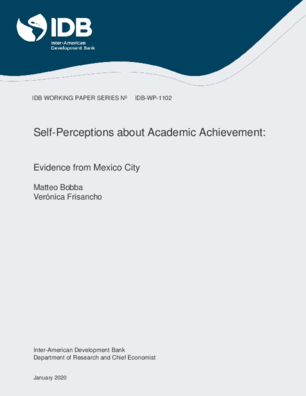Self-Perceptions about Academic Achievement: Evidence from Mexico City
Date
Jan 2020
A growing body of evidence suggests that people exhibit large biases when processing information about themselves, but less is known about the underlying inference process. This paper studies belief updating patterns regarding academic ability in a large sample of students transitioning from middle to high school in Mexico City. The paper takes advantage of rich and longitudinal data on subjective beliefs together with randomized feedback about individual performance on an achievement test. On average, the performance feedback reduces the relative role of priors on posteriors and shifts substantial probability mass toward the signal. Further evidence reveals that males and high-socioeconomic status students, especially those attending relatively better schools, tend to process new information on their own ability more effectively.




